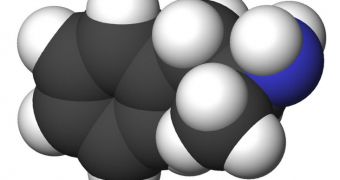According to a new research paper, it would appear that people using amphetamine are at a higher risk of experiencing a tear in one of the largest blood vessels in the body, the aorta.
This particular vessel leaves from the heart, and any damage to it is considered by healthcare experts to be a life-threatening emergency. Failure to treat teared aortas in time often results in death.
The scientists behind the new study say that amphetamine abusers experience three times the risk non-users have of developing a tear in the aorta. Details of the investigation appear in the August issue of the esteemed American Heart Journal.
According to San Francisco General Hospital cardiologist David Waters, experiencing an aortic dissection comes with patients feeling “the most horrible chest pain imaginable.”
“Patients say, ‘I think I’m going to die,’ and they’re right,” says the expert, who also holds an appointment at the University of California in San Francisco (UCSF).
The Merck Manual Online, a reference source for healthcare experts, shows that aortic dissection in fatal 75 percent of the time, if the emergency is not addressed by qualified personnel right away.
The investigation included more than 30 million patients across the United States, all of them aged 18 to 49. The healthcare records covered treatments that the patients had received between 1995 and 2007.
Of all the cases that the research team analyzed, 3,116 people experienced an aortic dissection. In all of these cases, the use of amphetamines or methamphetamines was coded the same way.
When looking at the overall statistics, the researchers determined that aortic dissection caused by the drug accounted for about 1 percent of all aortic tears on record.
People who develop the heart condition don't have too many options when it comes to treatment options.
Generally, physicians give them drugs that lower blood pressure, which is one of the main reasons the condition develops in the first place.
Another option is to perform surgery, in which a special, synthetic graft is installed in the aorta. This repairs the damaged vessel, but only in certain cases.
Generally speaking, death rates in patients are estimated to be about 25 percent, regardless if the people receive emergency treatment or not, Science News reports.

 14 DAY TRIAL //
14 DAY TRIAL //